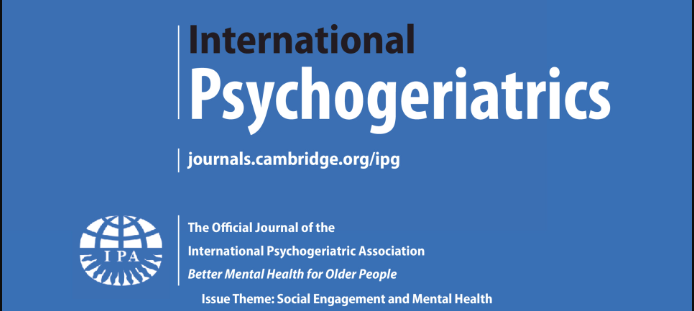P75: Using music to reduce depressive symptoms among nursing home residents: Preliminary results of a Bayesian Network Meta-Analysis of Randomized Controlled Trials
IF 4.6
2区 医学
Q1 GERIATRICS & GERONTOLOGY
引用次数: 0
Abstract
Objective:Reviews show that music interventions may be effective in reducing depressive symptoms among nursing home residents. Since interventions use various ways to include music, results on the effectiveness on depressive symptoms are often inconsistent. A previous review found that receptive music interventions (e.g., music listening) are more effective than active music interventions to reduce depressive symptoms among nursing home residents. Other research suggest that active music interventions (e.g., playing instruments, dancing) are more effective. Moreover, therapists seem to prefer using active music interventions. Because of its low costs, the previously found effectiveness and low side effects, it is important to gain more insight into components specific to the intervention that may contribute to its effectiveness in reducing depressive symptoms. This insight may help to fine-tune interventions and develop treatment protocols.Method:A Bayesian Network Meta-analysis was conducted to calculate the relative effectiveness of interventions including music. In addition, different network-meta-regression analyses were conducted to explorer components that may contribute to the effectiveness of the included studies.Results:Our search strategy resulted in N=22 eligible Randomized Controlled Trials (RCT), that included music in the reported interventions. Compared to Care as Usual, a multidisciplinary approach including music was the most effective (MD=-0.92, 95% CrI -2.8 to 0.97), followed by music interventions focused on sensory stimulation (MD=-0.43, 95% CrI -1.1 to 0.19), music interventions with reminiscence (MD=-0.38, 95% CrI -1.2 to 0.45) and cognitive interventions with music (MD=-0.31, 95% CrI -2.0 to 1.40). Level of depression (P75:利用音乐减轻疗养院居民的抑郁症状:随机对照试验贝叶斯网络元分析的初步结果
目的:研究表明,音乐干预可以有效减轻疗养院居民的抑郁症状。由于干预措施采用了不同的音乐方式,因此对抑郁症状的有效性结果往往不一致。之前的一篇综述发现,接受式音乐干预(如聆听音乐)比主动式音乐干预更能有效减轻疗养院居民的抑郁症状。其他研究表明,主动式音乐干预(如演奏乐器、跳舞)更为有效。此外,治疗师似乎更喜欢使用积极的音乐干预。由于音乐干预成本低、效果显著且副作用小,我们有必要进一步了解音乐干预的具体内容,这些内容可能有助于提高音乐干预在减轻抑郁症状方面的效果。方法:进行贝叶斯网络元分析,计算包括音乐在内的干预措施的相对有效性。此外,还进行了不同的网络-元回归分析,以探索可能有助于提高所纳入研究有效性的因素。结果:通过我们的搜索策略,获得了 N=22 项符合条件的随机对照试验 (RCT),这些试验在报告的干预措施中包含了音乐。与通常护理相比,包括音乐在内的多学科方法最为有效(MD=-0.92,95% CrI -2.8至0.97),其次是侧重于感官刺激的音乐干预(MD=-0.43,95% CrI -1.1 至0.19)、带有回忆的音乐干预(MD=-0.38,95% CrI -1.2 至0.45)和带有音乐的认知干预(MD=-0.31,95% CrI -2.0至1.40)。抑郁程度(ƅ=-0.88,CrI 95% [-1.81 to 0.06])和身体依赖程度(ƅ=-0.29,CrI 95% [-1.20 to 0.61])调节了干预措施的有效性,尽管这一点并不显著。结论:在构建的网络中,与照常护理组相比,包含音乐的干预措施并不能更有效地减轻疗养院居民的抑郁症状。然而,某些亚群似乎比其他亚群更能从音乐中受益。为了更深入地了解音乐在减轻抑郁症状方面的效果,需要针对特定目标群体开展更多研究。
本文章由计算机程序翻译,如有差异,请以英文原文为准。
求助全文
约1分钟内获得全文
求助全文
来源期刊

International psychogeriatrics
医学-精神病学
CiteScore
9.10
自引率
8.60%
发文量
217
审稿时长
3-6 weeks
期刊介绍:
A highly respected, multidisciplinary journal, International Psychogeriatrics publishes high quality original research papers in the field of psychogeriatrics. The journal aims to be the leading peer reviewed journal dealing with all aspects of the mental health of older people throughout the world. Circulated to over 1,000 members of the International Psychogeriatric Association, International Psychogeriatrics also features important editorials, provocative debates, literature reviews, book reviews and letters to the editor.
 求助内容:
求助内容: 应助结果提醒方式:
应助结果提醒方式:


